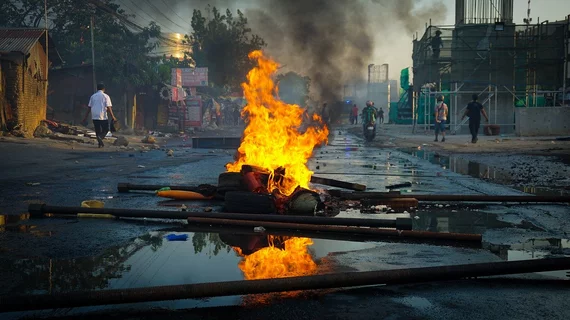Radiology responds to racial inequity: ‘The unjust treatment of people of color must stop’
As protests against police brutality and racial injustice continue across the U.S., big names in the imaging world are speaking out.
The American College of Radiology is one of the latest to weigh in, issuing a statement Monday on “recent tragedies and racial inequities.” ACR noted that the country has, again, “suffered a series of events which illuminate the disparities of our healthcare system and our society in general.”
Black Americans, the college wrote, are disproportionately affected by such healthcare and economic inequality, and the COVID crisis has only exacerbated this reality.
“We support the victims of senseless violence while we work to increase diversity, inclusion and access to care in our field of radiology,” the ACR said in its June 1 statement. “While recent events have been tragic, and even shocking, we still have the opportunity to address inequity in healthcare and social justice disparity in America in ways that preserve the safety and dignity of all involved,” the college added, noting that it plans to work with government officials and other stakeholders to address such injustice.
The Radiological Society of North America was one of the first in the field to speak out on the protests and George Floyd’s murder, sharing its thoughts on Saturday.
“RSNA stands in support of the African-American community. With a mission to promote the health and well-being of all people, the senseless loss of life we continue to witness is extremely disturbing and heartbreaking. The unjust treatment of people of color must stop,” the Oak Brook, Illinois-based society shared with its 46,000 followers on May 30.
The American Board of Radiology also weighed in on Monday on Twitter, saying it’s “horrified by the senseless deaths of so many African Americans across our country.”
“We passionately believe in the right of lawful assembly and encourage respectful dialogue and the subsequent action that must occur to prevent such acts in the future,” the Tucson, Arizona, doctor certification nonprofit said. “It is time for our nation to come together to end discrimination and support the rights of all people.”
Other imaging interest groups this week also signed on to a statement issued by the Council of Medicine Specialty Societies, which represents some 800,000 physicians across 45 segments. Those lending their support included the Society of Nuclear Medicine and Molecular Imaging and the Society of Interventional Radiology.
“Racism in our society cannot be ignored as it undermines public health,” the groups shared Monday. “[The Council of Medicine Specialty Societies] steadfastly supports its member specialty societies working to promote equity and reduce the adverse impact of racism.”

